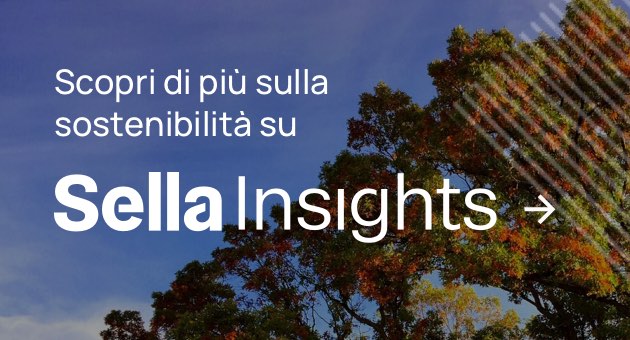Non-Financial Statement
La Dichiarazione Non Finanziaria è il documento dove sono rendicontate le attività realizzate dal gruppo Sella nell'ambito della Sostenibilità. Viene redatta secondo quanto previsto dal Decreto Legislativo 254/2016, che recepisce la Direttiva 2014/95/EU, nonché in conformità ai "Global Reporting Initiative Sustainability Reporting Standards" definiti dal Global Reporting Initiative (GRI).
La dichiarazione non finanziaria è oggetto di assurance da parte della società tempo per tempo incaricata dell'attività di revisione legale del bilancio.
La Dichiarazione Non Finanziaria del gruppo Sella è risultata la più apprezzata dai consumatori nell'ambito dell'Index Future Respect 2020 di ConsumerLab. Fanno parte dell'Indice quelle imprese che, tramite la loro rendicontazione non finanziaria, hanno illustrato in maniera comprensibile ed esaustiva la propria governance sostenibile facilitando scelte consapevoli da parte dei consumatori e per aver evidenziato le migliori pratiche utili alla promozione della cultura della sostenibilità, con una narrazione efficace, coinvolgente e distintiva.
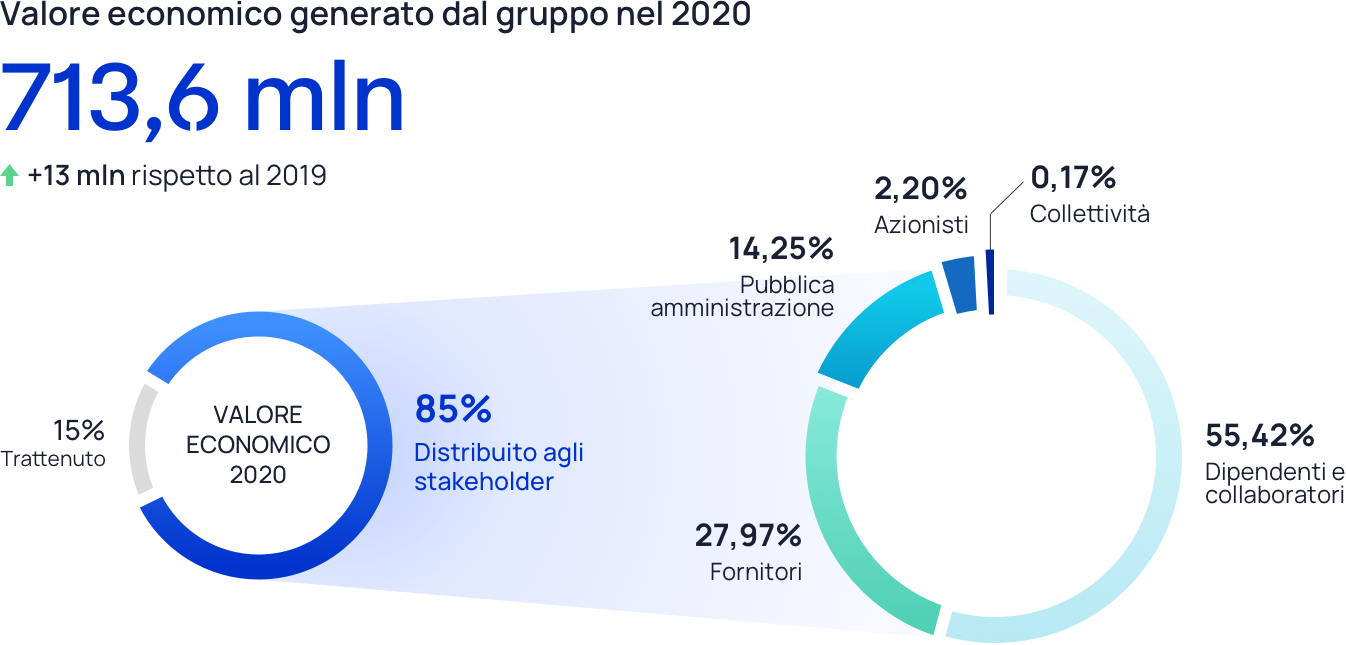
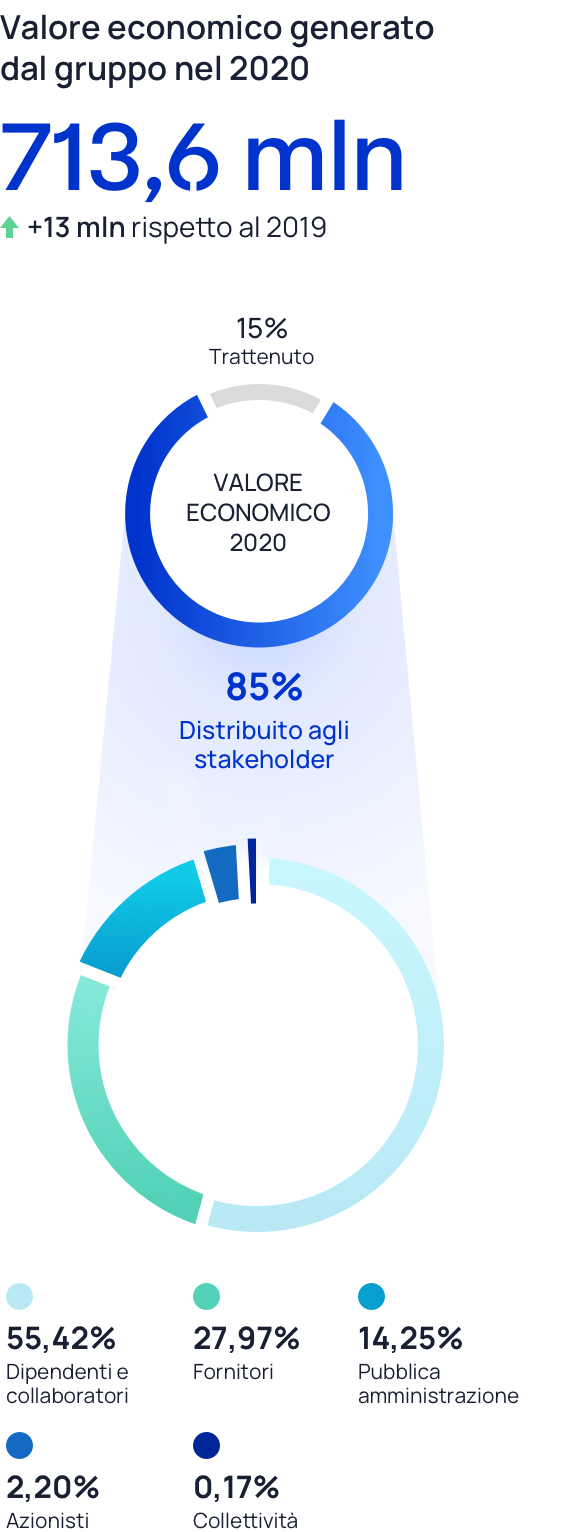
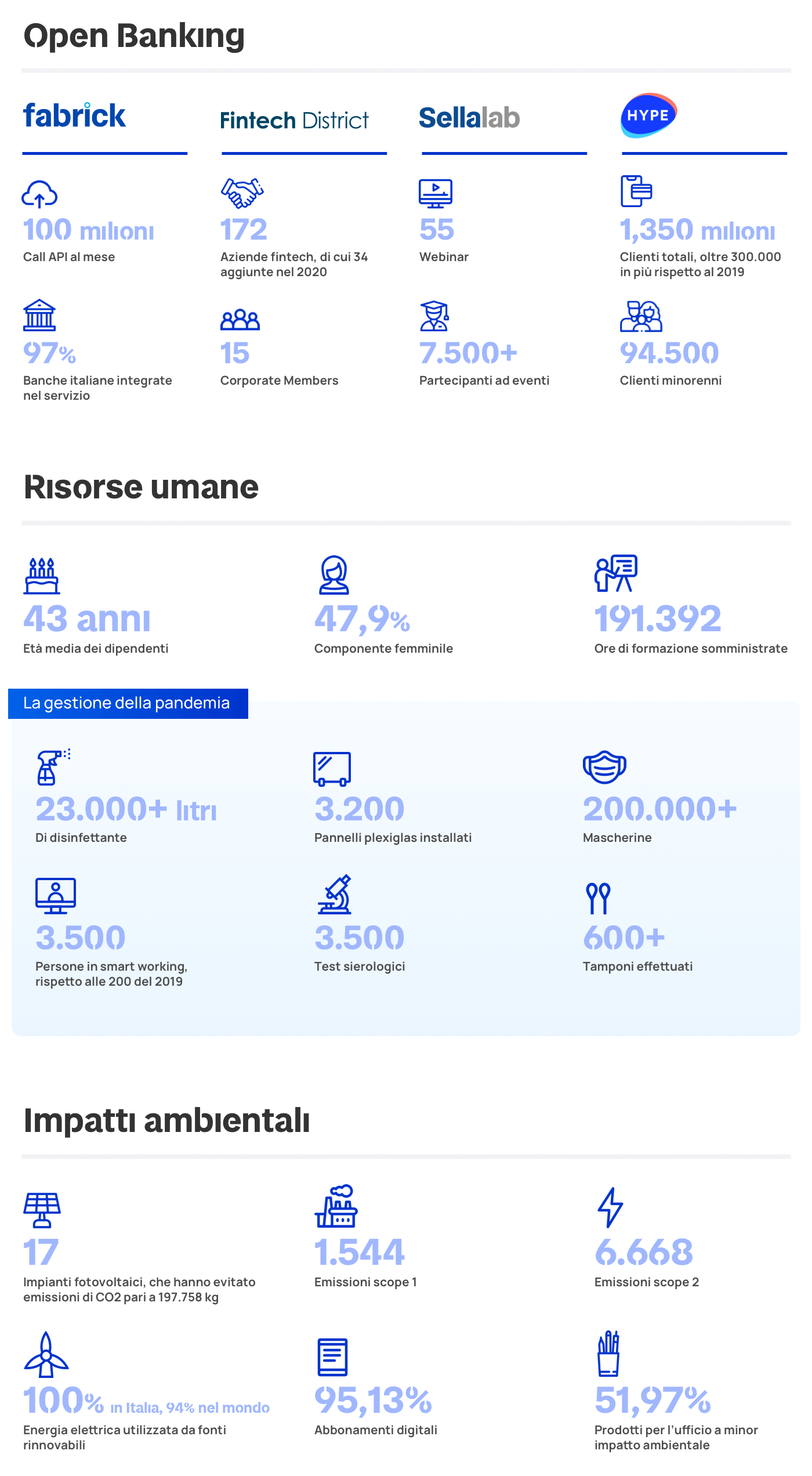

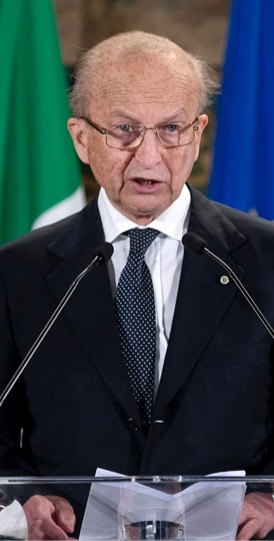
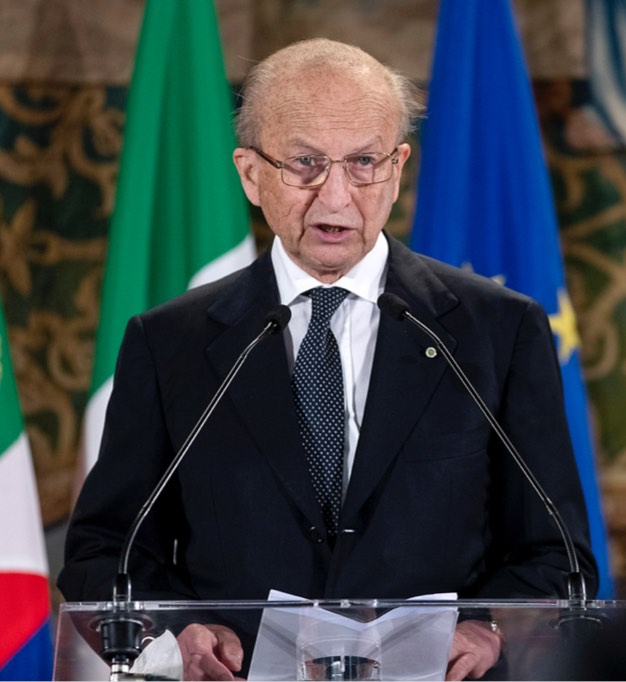
Here below are some excerpts from the Letter to the stakeholders, signed by the Chairman of the Sella Group, which opens the consolidated Non-Financial Statement.
Maurizio Sella:
let's look to the future with confidence
Everything around us has suddenly changed, forcing us to review our personal, social, professional, and productive interactions. The lockdown months and the necessary precautionary measures also had a critical impact on the economy.
However, they have, as well, been months of resilience, thanks also to an extraordinary cohesion and collective commitment, to which everyone contributed, doing their part for the common good: individual citizens, associations, organizations, small and large companies, national and international institutions. Science has also done its part, delivering vaccines quite quickly, which quickly inoculated to as many people as possible, in combination with the development of therapies against the disease, has helped us overcome the critical phase of the pandemic.
Through the difficulties of the pandemic, the European Union has rediscovered the spirit of its origins and promptly launched an intervention program which, without exaggeration, has been defined as a new Marshall Plan, due to the impacts it will have, not only from an economic perspective but also from a social, health and sustainability outlook of future development. It is a good plan, with many resources available: a sign of epochal change, to counter the economic crisis generated by the pandemic, with an eye to the new generations.
Thanks to the resources of this plan, therefore, we have, on one side, the possibility of improving the health structures, which the pandemic unequivocally confirmed as important and urgent, so that they are always efficient, effective and in step with the times. On the other side, it will be possible to help to start the strong, expected economic recovery, potentially a real new economic miracle. Thus, a year full of difficulties turned out also as a time rich in opportunities. The pandemic progressed transformations that were already underway and that are improving the world we live in. First of all, this is visible concerning digital transformation and the attention to sustainability, representing, today, clear priorities of what is called the "new normal".
Economic Value Created
One of the main data resulting from the Non-Financial Declaration concerns the Economic Value, also defined as added value, created by the activities of the Group, which amounted to 713.6 million euros (13 million more than in 2019), 85% of which was distributed. Much of the shared economic value (55,4% circa 337.1 million euros) was used for employees and cooperators in the form of salaries, variable remuneration and social security contributions. 28% was used for the payment and support of the supply chain business system: overall the Group made purchases of over 170 million euros. Economic impacts of the Group are also measured in supporting public spending through the sharing of tax revenues (14.3%) and in the remuneration of the share capital (2,2%), thus fostering further investments. Concerning disbursements to the collectivity as previously said, the Group disbursed more than 1 million euros for the Coronavirus emergency and in form of contributions to entities and associations (Fondazione Sella, Fondazione Umberto Veronesi), Universities, non-profit organizations, the Italian Red Cross.
People
Education, work-life balance, corporate welfare, involvement, performance management. In the current context, of strong acceleration of digital transformation and innovation, also due to the emergency connected to the pandemic, all these become essential areas of good management and development of people in the company. Attention to people, intended as "human resources" is one of the chapters of the Non-Financial Statement that we have just published.
The value generated by the Sella Group and the results achieved in such a particular year resulted from the work of a team that, in December 2020, reached 5,248 members, including employees and co-operators who make up the Sella Team. Of these, there are 4,854 employees, an increase of 207 units compared to 2019. The 2021-2023 Business Plan envisages continuous growth and HR investments.
It is a young group, whose workers' average age is about 43 years old which has always considered diversity as a winning factor. diversity and inclusion are part of the Group's everyday life, as demonstrated by both the substantial balance between the female and male component and the continuous cultural exchange also favoured by working contacts, among colleagues present in Italy, India, Romania, England, Spain, United Arab Emirates and Switzerland.
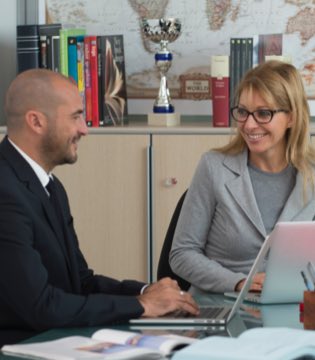
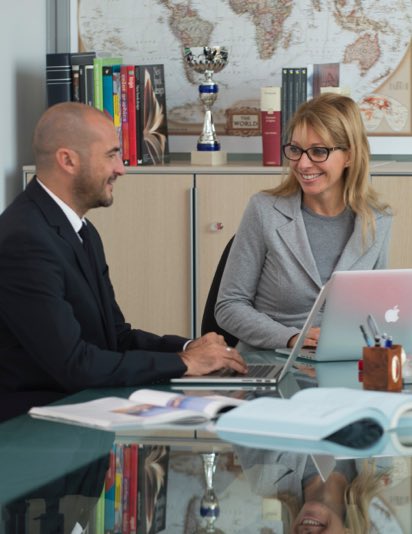
When it comes to training, the Group has structured a plan intended for setting up and launching significant staff development paths to enable the organization to operate in an agile and open manner in a rapidly changing context. The individual development of human resources translates in enhancing the talents of each individual so that everyone can fully take part, to the best of their ability, in achieving objectives. In 2020, overall, more than 191,000 training hours were provided at the Group level.
The Group is significantly focused on work-life balance and projects aimed at improving it involve a wide range of contexts. To support a better work-life balance, in 2020, the "Banca del Tempo" (TimeBank) project was implemented. Colleagues could donate vacation days to other colleagues in need, who made a specific request so that they can take advantage of it. Smart working activated in the Group well before the inception of the pandemic, as well as the possibility of working in co-working spaces in various Italian cities, made it possible to optimize business trips with a benefit both for the quality of life of people and for the environment thanks to the emissions saved.
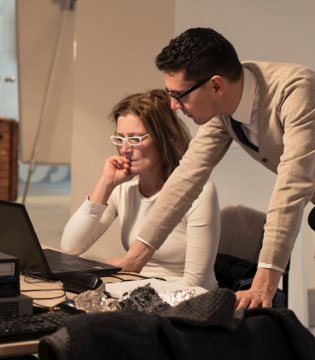
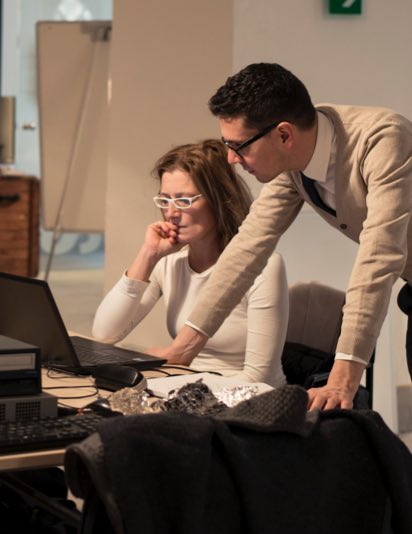
The company welfare system was further enriched and promoted to support the well-being of people in the organization and maintain a high level of motivation and engagement, in continuity with previous years. Engaging people is a pivotal factor to reach corporate objectives. This is pursued: through several initiatives, the use of multiple channels, and internal communication tools, that further evolved and adapted to ensure maximum involvement even during the pandemic, for instance: through streaming events, podcasts, videos and the increase in the use of the corporate social network, that during 2020, recorded around 9 million interactions.
Finally, the performance management system, which has been evolving in recent years, is a significant opportunity for joint reflection between manager and employee, making it possible to provide feedback on the results achieved and on the behaviours expressed, with a view to constant improvement.
The Environment
To achieve sustainable development, capable of satisfying the needs of the present without compromising the ability of future generations to meet their own, attention to the environmental impact of its activities is a fundamental aspect to guide one's decisions.
For this reason, too, the Sella group has for many years chosen to focus on solutions with greater energy efficiency and lower environmental impact, as reported in the Non-Financial Statement just published, to pursue a progressive reduction in carbon dioxide emissions.
Most of the share of electricity purchased and used by Sella is green energy: it is supplied by the Compagnia Valdostana Delle Acque Trading s.r.l. (CVA Trading) which certifies the «Guarantee of Origin» that is to say the origin from renewable sources.
The Group also contributes to its energy needs thanks to 17 photovoltaic systems installed on the roofs of offices and branches scattered throughout the Italian territory. More specifically, the 17 photovoltaic plants in 2020 produced 372,426 kWh with a saving of 197,758 kg of carbon dioxide emitted into the environment.

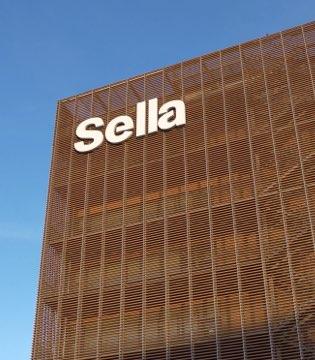
As part of the construction of the Sella group Headquarters, inaugurated in 2010, significant initiatives were adopted regarding eco-sustainability and energy efficiency; in detail through the installation of a solar thermal system to produce hot water and two photovoltaic systems, allowing for a significant reduction in the consumption of methane gas and electricity and related emissions. The building minimizes energy waste thanks to the insulation and thermal inertia of the architectural envelope, uses groundwater and rainwater for the toilets and is equipped with automatic lighting adjustment and control systems. In 2020, the painting of the facades of the building in via Italia in Biella, headquarters of Sella Leasing and of numerous offices of the Sella group, was carried out using Airlite paint, an innovative product that allows the concentration of atmospheric pollution to be absorbed by up to 90%. . The surface treated with this paint, equal to 3,500 square meters, is able to reduce the daily pollution equal to that produced by 748 Euro 6 petrol cars and to decrease the atmospheric concentration of formaldehyde by 90,1%, also allowing to absorb up to 165 kg of CO2. Free still and sparkling water dispensers have been installed in the Group's offices to encourage using water bottles, such as those with the Sella logo distributed to all members of the Sella Team with the Simplehero initiative, to improve savings in plastic consumption.
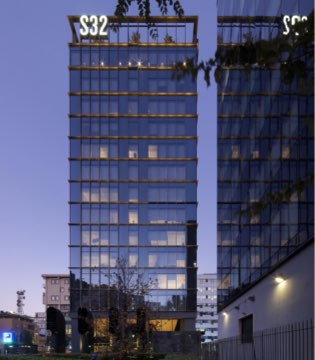
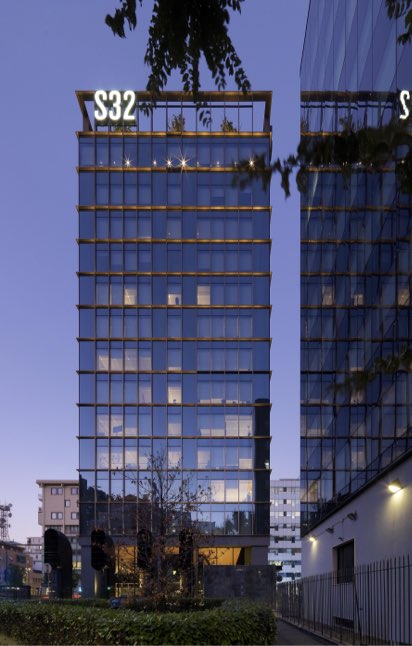
The S32, the building in Milan housing the Fintech District community received the LEED (Leadership in Energy and Environmental Design) "Platinum" certification, the highest level, characterizing buildings that make efficient use of resources, use less water and energy and reduce greenhouse gas emissions allowing to save management costs. LEED certification provides a set of standards for evaluating environmentally sustainable buildings and it is currently the most widely used voluntary building certification system in the world.
The individual companies of the group have also developed independent initiatives to reduce their environmental impacts, referring to both consumption and the design of workspaces. Among these, the home automation system at various offices of Banca Patrimoni Sella & C. the choice of LED lighting fixtures, the recycling of equipment used through collaboration with external partners in Centrico Selir stand out. In 2020, as a result of the pandemic and the adoption of smart working, disincentives to the use of paper continued, when printing was not mandatory. During the year, the number of unprinted sheets was 6,218,793, thus saving 78 trees from felling.
The attention to the environment of the Sella Group also applied to the supply chain. In 2020: over 50% of the office material used was of low environmental impact, digital subscriptions to newspapers and magazines have reached the 95.13% of the total, an increase compared to 88% in 2019. Support for the territory also reflected in the choice of local suppliers in Italy (84%), India (86%) and Romania (63%).
A year of work at the time of COVID
On December 31, 2019, China announced a cluster of viral origin atypical pneumonia in Wuhan, Hubei Province. A little less than two months later, reports followed of outbreaks in northern Italy, from which the first wave of what the World Health Organisation declares to be a pandemic spread out. To counter it, Sunday, March 8, 2020, Italy decreed a national lockdown.
This rapid sequence of events has, literally, changed our history, putting us in front of a dramatic and unexpected emergency, deeply upsetting consolidated habits and hugely accelerating transformations that were already partly in place. Now, a year later, our Non-Financial Statement describes those convulsive phases, focusing on everything done to help to deal with the emergency, thus ensuring the overall operational continuity of banking and financial services to our customers, protecting people's health.
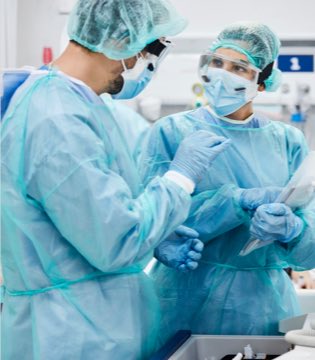
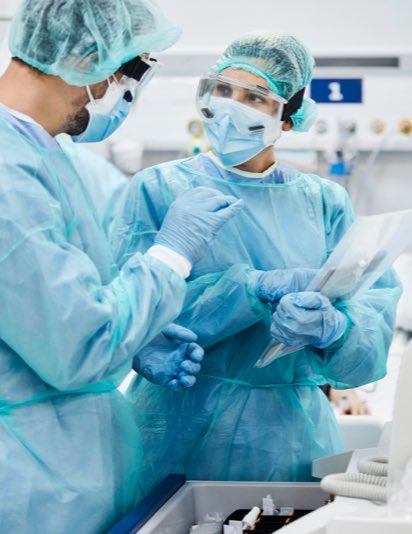
Solidarity
The first reaction to the emergency, in the face of the difficulty in which the structures and health staff in the areas most affected by the sudden spread of the virus found themselves, was the participation in solidarity and support initiatives. Thanks to these initiatives, the companies and employees of the Sella group donated a total of 484 thousand euros to organizations and health facilities in various Italian regions.
Smart working
One of the timely measures adopted to protect the health of employees and customers also thanks to important investments in technology in recent years, was the use of smart working and remote relationships, in all cases implemented, "from evening to morning". Smart working involved over 3,500 people simultaneously. The total remote working days during the year went from 17,000 to 460,000. The new ways of working also involved a training campaign and a comprehensive program to equip employees with laptops, screens, keyboards, ergonomic chairs and other tools to improve personal workstations outside the office.
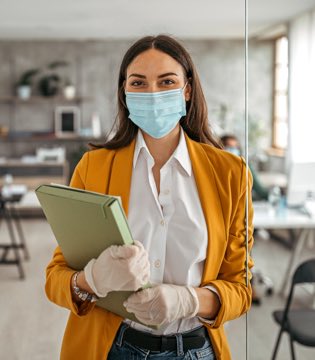
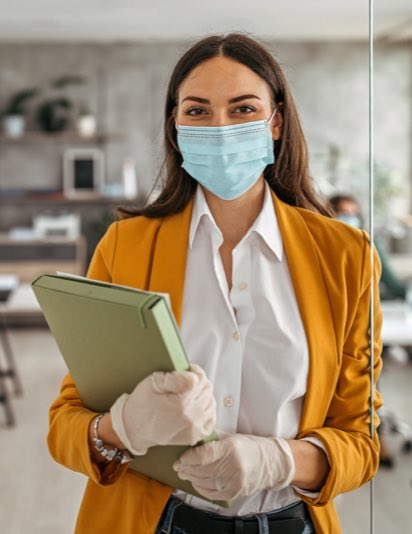
Security of offices and branches
During the emergency and the lockdowns, the banking and financial services never failed. The branches have always remained open, receiving customers by appointment and in compliance with safety rules. In all cases for which smart working was not applicable, operational contact points with customers and offices were provided with all the necessary equipment to operate safely. This involved the purchase and distribution of more than 3200 Plexiglas panels, more than 23 thousand litres of disinfectant and more than 200 thousand masks.
Remote relationships
Through its network of participations and interactions with startups and fintech companies, through the innovation platform Sellalab and the Fintech District of Milan, new solutions have been developed to foster remote interactions with customers. These involved: the web collaboration platform for branches and private bankers (through the Bandyer scale-up), solutions to spread e-commerce among shops affected by the restrictions (through the startup Vidra), fostering contactless payments (through Links and Qr Code) and procedures to speed up the requests to join the moratoria and the disbursement of loans provided for by the Liquidity Decree (through the partnership with Credimi, in which Banca Sella holds a stake). All this in addition to the setting up of ceilings to finance on favourable terms the purchase by companies and families of digital devices useful for smart working and distance learning.
Serological tests and vaccines
All workers and employees of the Sella Group had the opportunity to undergo the serological test, free of charge and voluntarily, that in the acute phase of the emergency made it possible to detect many asymptomatic cases thus avoiding the spreading of the infection among colleagues and their family members. As soon as available, employees were also allowed to undergo the flu vaccine. Health insurance coverage was also extended to cover Covid-19 risk. Today, as a plus, the Group has completed the necessary protocols to vaccinate its employees and made available its spaces in Biella to set up a vaccine hub.
The next steps
The pandemic and everything made to deal with the emergency is also teaching us important lessons. Many things will never go back to the way they were before. One of them is certainly, about workspaces. For example: together with Studio Cra - Carlo Ratti Associati, the Group is working on a project to rethink its offices, creating working environments tailored to fit with the new context, characterized by digital transformation and open innovation, thus responding to the post-pandemic challenges of COVID-19. The pilot project of this partnership is in Turin. A recently purchased building will become a new hub, with spaces dedicated to banking, financial services, Fintech and innovation. The activities for which the Group is standing out.
Documents
Sustainability reports
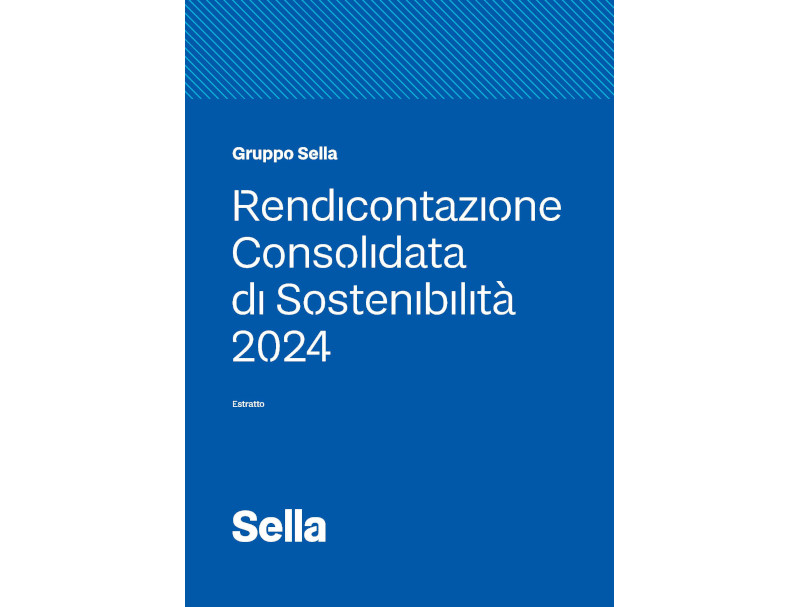
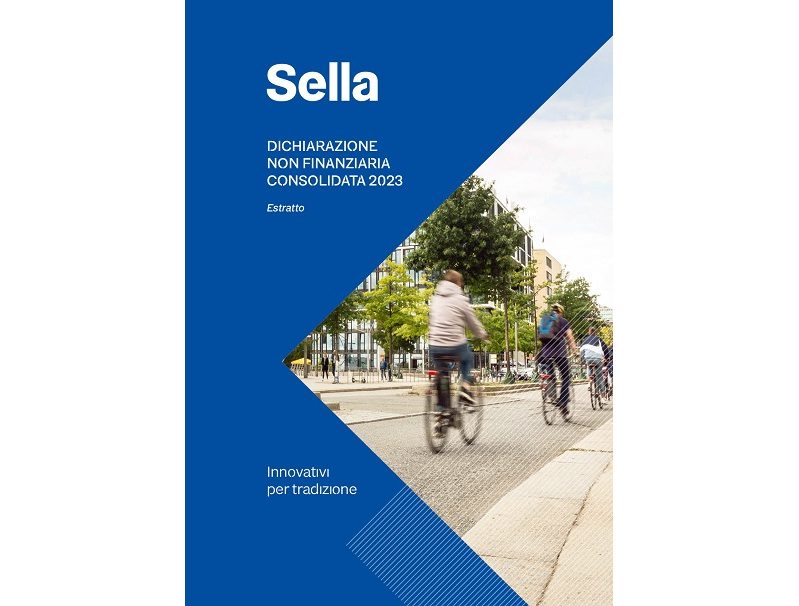
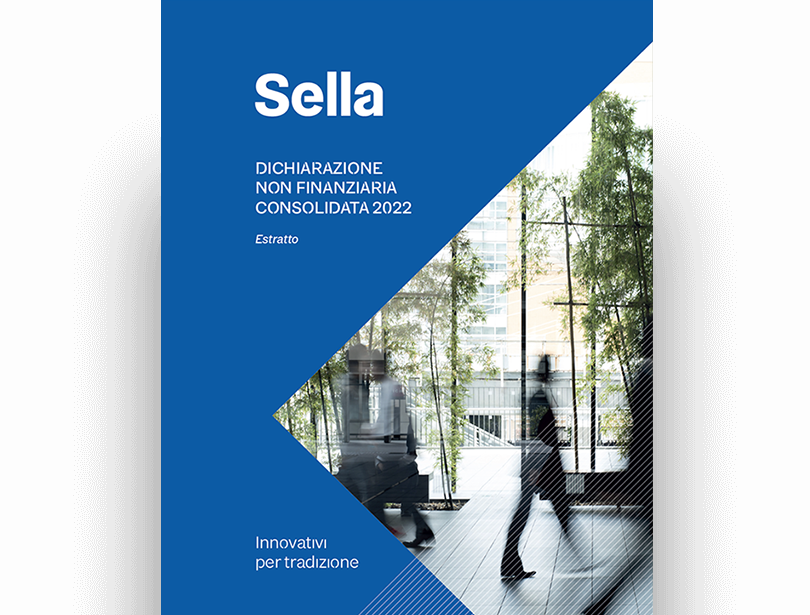
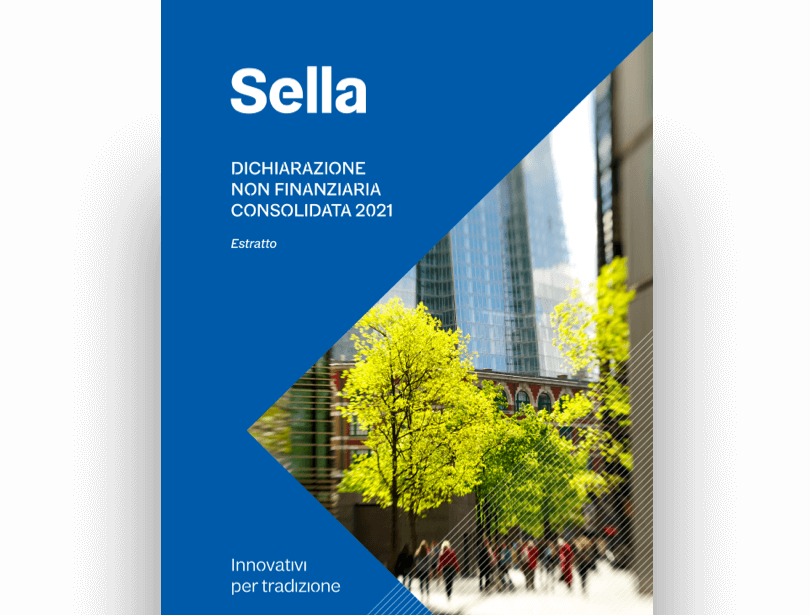
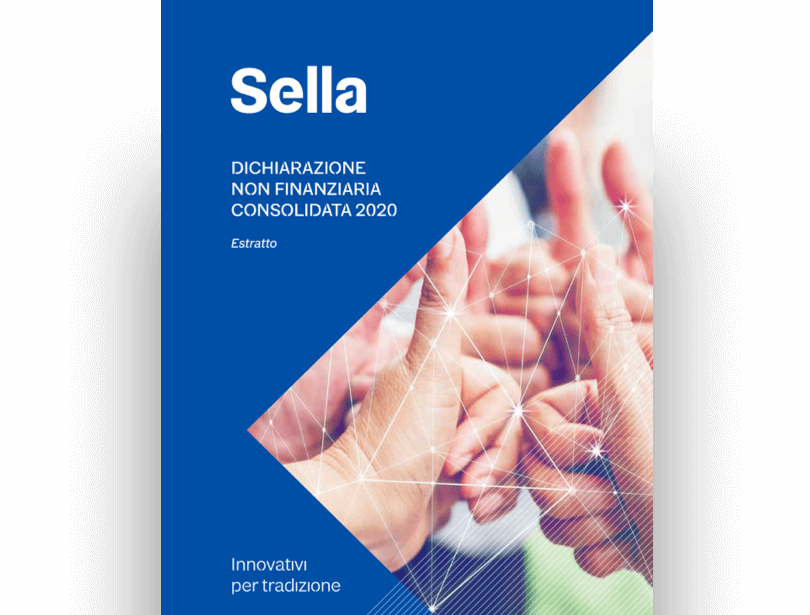
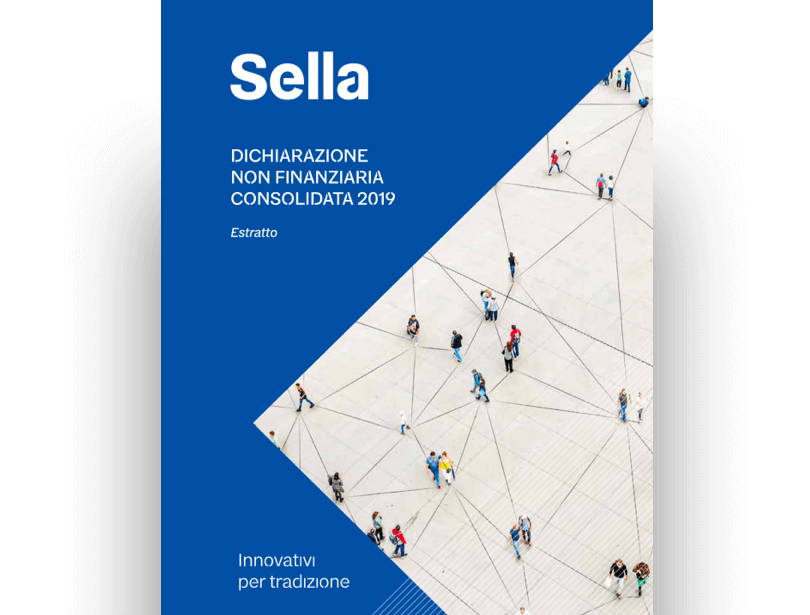
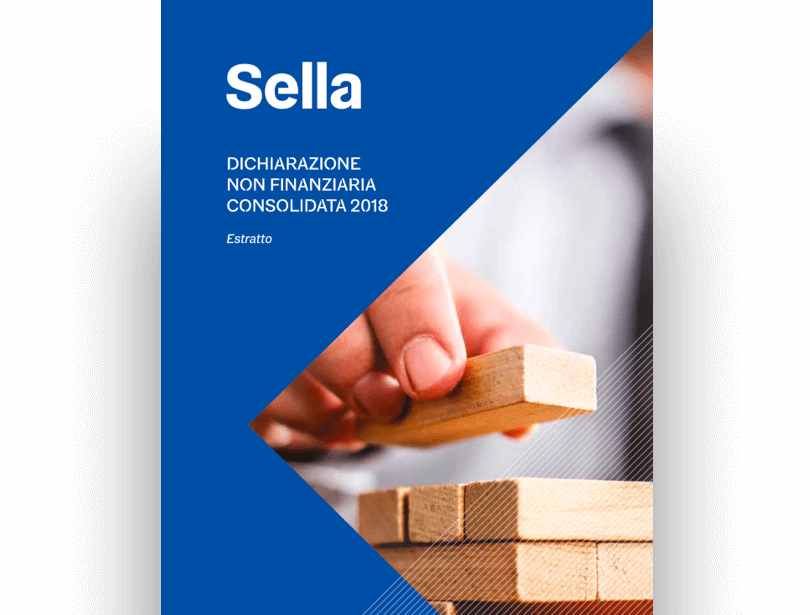
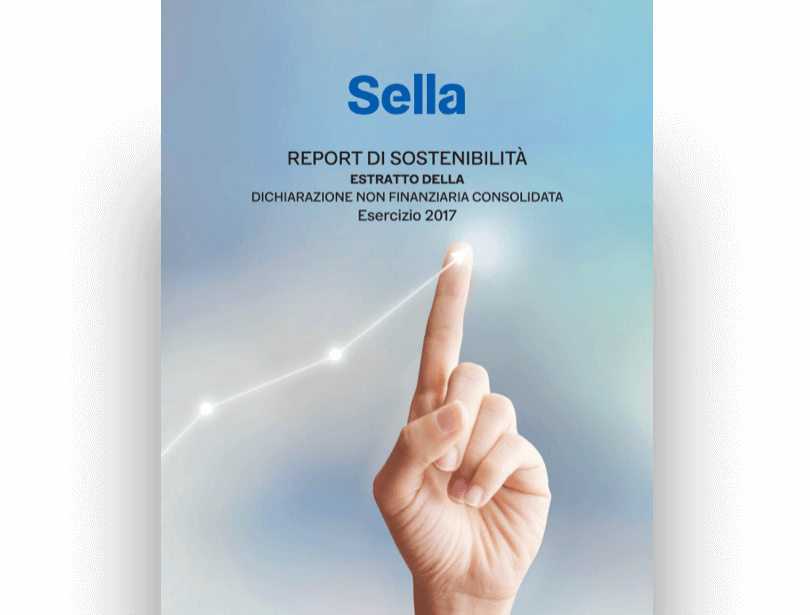
Read the Letter to the Consumer written by ConsumerLab, which shows our commitment to building a more sustainable and inclusive economy at an environmental and social level.



